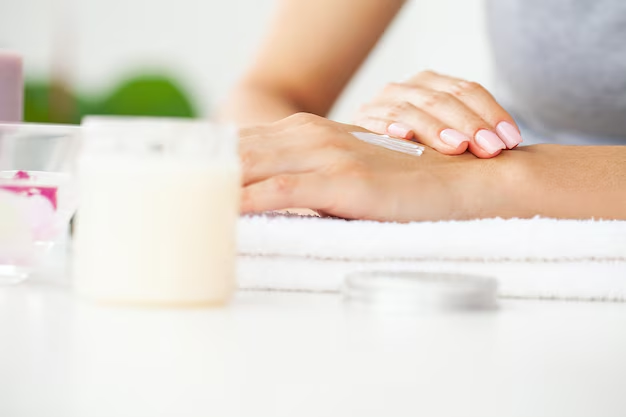Can Vaseline Help Your Eczema?
For those struggling with eczema, finding a simple and effective solution to alleviate the discomfort and itchiness can seem like a relentless pursuit. Among various remedies, Vaseline, a household staple found in many medicine cabinets, often garners attention. But is Vaseline genuinely a good option for treating eczema symptoms? Let's delve deeper into this common query and unravel what makes it potentially beneficial for eczema while exploring its related considerations.
Understanding Eczema: A Quick Overview
Eczema, also known as atopic dermatitis, is a chronic skin condition characterized by inflammation, itchiness, and redness. Understanding the basics of eczema can illuminate why certain treatments work better than others:
- Symptoms include dry, itchy skin, often accompanied by red or brownish-gray patches, cracked skin, and sometimes blistering.
- Triggers vary and include environmental factors such as allergens, skin irritants, stress, and even changes in weather.
- Management typically involves moisturizing, avoiding irritants, and sometimes medications under a healthcare provider's guidance.
Eczema's complexity requires multifaceted management, prompting patients to explore various topical solutions, including ointments like Vaseline.
What is Vaseline?
Vaseline, the trade name for petroleum jelly, is a semi-solid mixture of hydrocarbons. It's known for its versatile uses, with primary functions such as:
- Occlusive properties: It forms a sealing barrier on the skin, locking in moisture.
- Soothing agent: Often used to protect minor cuts, burns, or dry skin.
- Cosmetic uses: Helps in makeup removal, skin softening, and even as a lip balm.
The simplicity of its composition also means it's hypoallergenic and generally safe for those with sensitive skin.
How Vaseline Might Benefit Eczema
Elucidating how Vaseline can be effective for eczema involves looking at its key attributes:
1. Moisture Retention
Eczema often involves an impaired skin barrier, making moisture retention a top priority. Since Vaseline coats the skin with a waterproof layer, it effectively traps existing moisture, preventing further drying out—a critical aspect of managing eczema.
2. Barrier Protection
With eczema, skin can become more vulnerable to external irritants and allergens. Vaseline's barrier-forming properties help protect the skin from exposure to harsh environmental elements, potentially reducing flare-ups.
3. Safety for Sensitive Skin
For those with eczema, minimizing skin irritation is paramount. Vaseline's hypoallergenic nature makes it less likely to cause adverse reactions, even on delicate skin, compared to some other products that contain fragrances or alcohol.
4. Cost-Effectiveness
Vaseline is an economical choice for eczema treatment. Compared to other specialized eczema creams or prescription options, it’s readily available and budget-friendly, appealing to those seeking an affordable daily skincare routine.
The Steps to Using Vaseline for Eczema
Before integrating Vaseline into your eczema care regimen, it’s crucial to know how to use it effectively:
- Clean and dry the affected area: Always apply it to clean skin to prevent trapping dirt or bacteria.
- Apply a thin layer: Since it's thick, a little goes a long way. Gently smooth a pea-sized amount over the affected area.
- Use consistently: Application should occur twice daily or as needed, especially post-bathing, to lock in moisture.
Considerations and Cautions
While Vaseline offers several benefits, it’s important to weigh some considerations:
Allergies and Sensitivities
Although generally safe, everyone's skin is unique. Conduct a patch test before extensive use, particularly if you have known sensitivities or allergic reactions to other skincare products.
Not a Cure
While Vaseline can greatly alleviate symptoms, it’s not a cure for eczema. It should be part of a broader skincare strategy and balanced with other interventions or treatments discussed with a healthcare provider.
Exploring More Natural Remedies
For those looking for additional avenues alongside Vaseline, here are some natural remedies that might complement your eczema toolkit:
Coconut Oil
A well-known natural moisturizer, coconut oil is praised for its antibacterial properties, which can help prevent infection—a common complication of eczema due to skin breaks from scratching.
Colloidal Oatmeal
This is another popular soothing agent that acts by forming a protective barrier on the skin while also limiting itchiness.
Aloe Vera
Known for its calming, cooling properties, aloe vera gel reduces inflammation and can soothe inflamed, irritated eczema patches.
When considering these alternatives, recall that not every natural remedy suits everyone with eczema. Monitor how each remedy affects your skin.
Leveraging a Comprehensive Skincare Strategy
For effective management, developing a holistic routine can optimize results:
1. Daily Hydration
Drinking plenty of water helps maintain skin hydration from within.
2. Environmental Control
Use humidifiers to maintain moisture levels in dry rooms and choose breathable fabrics to reduce irritation.
3. Stress Management
Reducing stress through meditation, yoga, or relaxation techniques can lessen flare-ups, as stress is a well-noted eczema trigger.
4. Professional Consultation
Seek advice from dermatologists or healthcare providers for personalized management plans, especially if symptoms are severe or persistent.
Ultimately, while Vaseline can be a valuable addition in managing eczema, understanding its limitations and integrating a comprehensive skincare approach can lead to better outcomes. By fostering an informed perspective, individuals can make empowered choices that align with their unique skin needs.
🗂 Quick Summary
- 🌧 Moisture Lock: Vaseline helps retain skin moisture.
- 🔒 Protective Barrier: Shields sensitive skin from irritants.
- 💰 Cost-Effective: Budget-friendly for continuous use.
- 🥥 Try Alternatives: Complement with coconut oil, oatmeal, or aloe vera.
- 🏥 Consult Professionals: Seek expert advice for severe cases.
- 📘 Holistic Approach: Combine with lifestyle and environmental changes for best results.

